This post may contain affiliate links, from which we earn an income. Click here to read our affiliate policy.
Albania, with its unspoiled landscapes, complex history, and vibrant culture, has become an increasingly popular destination for adventurous travelers. However, safety is a common concern for many and it’s a question we often get asked by fellow travelers.
We spent over two months traveling to the four corners of Albania, from the Albanian Alps to the beaches of the Albanian Riviera via Lake Ochrid and the capital city of Tirana. We felt safe the entire time, but we were well prepared.
In this comprehensive guide, we’ll explore the safety aspects of traveling to Albania and provide valuable tips and travel advice to ensure your journey is secure and enjoyable.
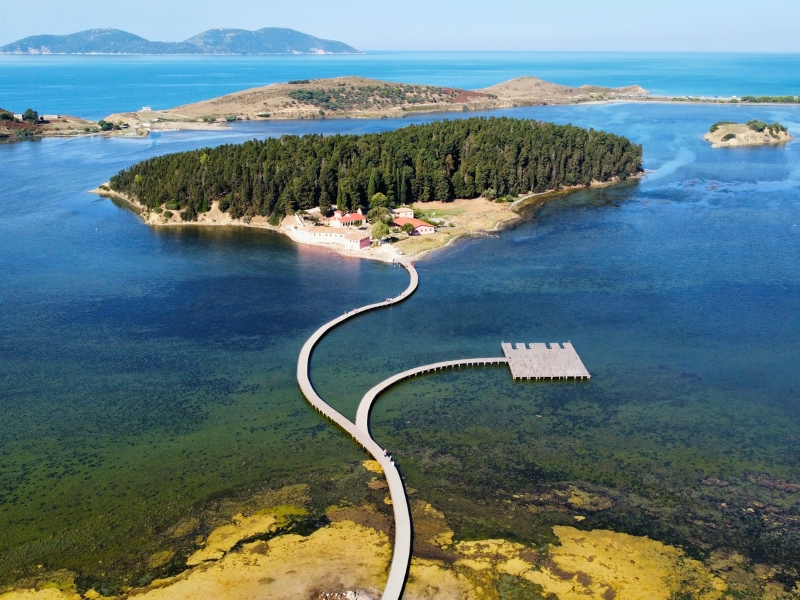
Is Travel to Albania Safe?
Albania is generally safe for travelers, with a low crime rate and friendly locals who are often eager to help visitors. While there are some areas and activities that may require extra caution, most of the country is safe for tourists.
Violent crime is rare, and petty crime, such as pickpocketing, is more common in crowded areas. By taking basic precautions, you can enjoy a safe trip to Albania.
According to the World Population Review, Albania’s crime index is 45.4 crimes per 100,000 people annually. In comparison, the US crime index is 49.2, and the UK stands at 46.9. So, despite Albania’s sometimes poor safety reputation, statistically, it is actually safer than both America and the United Kingdom.
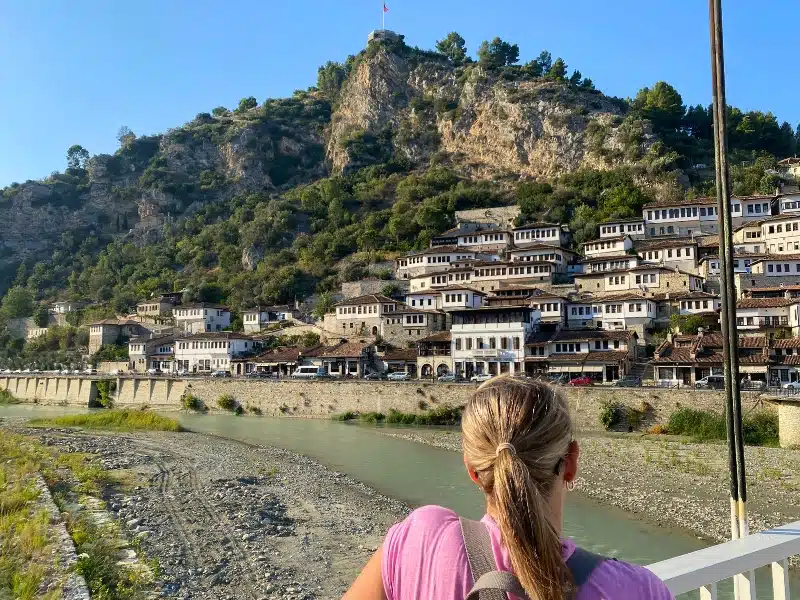
Albania Travel Safety Tips
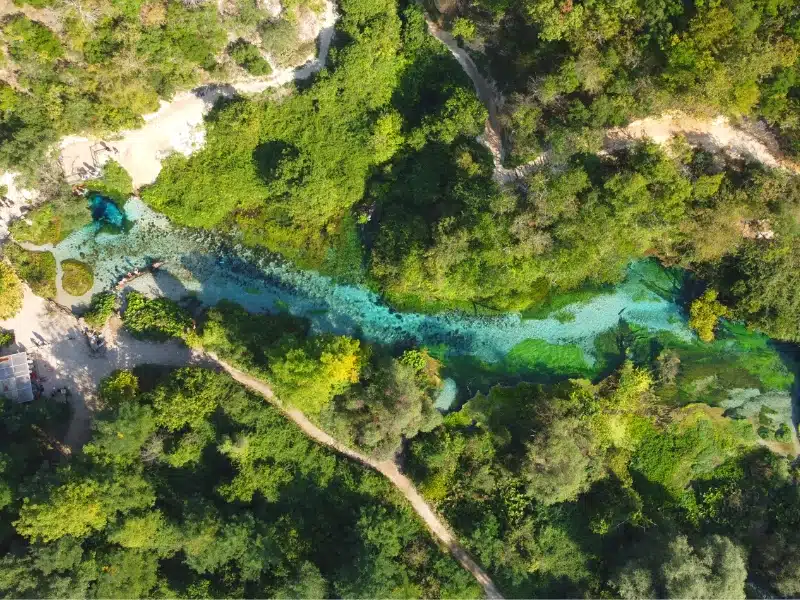
What Do You Need to Travel to Albania?
Before traveling to Albania, ensure you have the following:
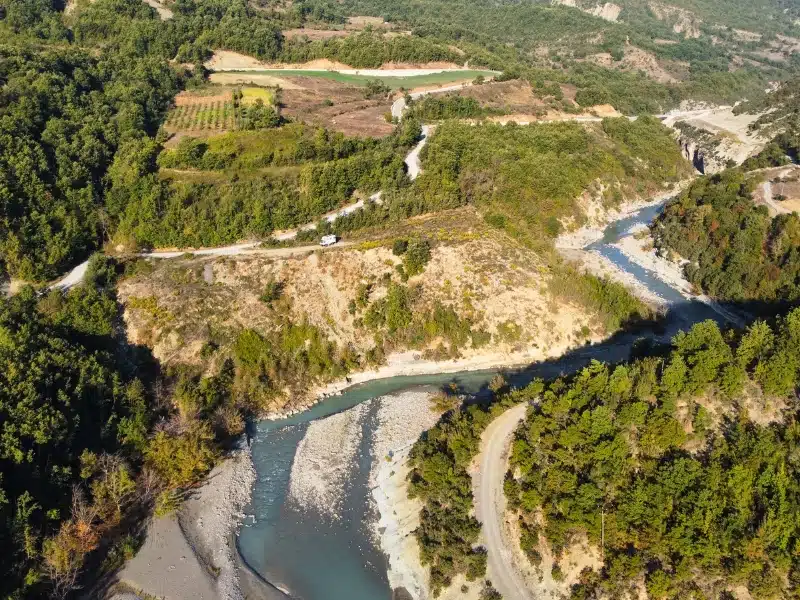
Medical Services in Albania
Albania offers a variety of medical services for travelers, with a healthcare system that includes both public and private options. Here’s an overview of what you can expect as a traveler in Albania:
Emergency Medical Services
The emergency number in Albania is 127 for medical emergencies. For general emergencies, including police and fire services, dial 112.
Ambulances are available in major cities, but response times can vary, especially in rural areas. Ambulance services are provided by both public and private operators.
Public Hospitals and Clinics
Public healthcare in Albania can be basic, especially outside the capital, Tirana. The quality of facilities and services may not match what travelers from Western countries are accustomed to.
English-speaking medical staff are not always available in public hospitals, though you may find some in larger cities like Tirana and Durres.
Public healthcare is generally low-cost, but travelers are usually expected to pay out-of-pocket for services. It’s advisable to have travel insurance that can cover these costs.
Private Hospitals & Clinics
Private healthcare facilities in Albania are generally of a higher standard compared to public hospitals. These facilities often have more modern equipment and better services.
Many private clinics and hospitals have English-speaking doctors, particularly in Tirana and other tourist areas.
Private healthcare is more expensive than public services, but still affordable compared to Western Europe or North America. Many private facilities accept international health insurance.
Pharmacies
Pharmacies are widely available in cities and towns across Albania. Most medications can be purchased without a prescription, but it’s a good idea to bring any specific medications you need.
Some pharmacists speak English, especially in urban areas, and can provide basic medical advice.
Make sure you have travel insurance you can trust when visiting Albania. We recommend True Traveller for their 5-star TrustPilot reviews, variety of cover options, best activities cover as standard, great prices, and excellent service.
Common Scams in Albania
While Albania is a safe and welcoming country for travelers, it’s always wise to be aware of potential scams that could disrupt your trip. Here are some common scams to watch out for and tips on how to avoid them:
Fake Tour Guides
One of the most common scams in Albania involves fake tour guides. These individuals typically approach tourists at popular attractions, offering their services as guides.
They might seem knowledgeable and friendly at first but often provide poor-quality tours or demand higher fees than agreed upon.
Always use licensed tour guides or book tours through reputable agencies like Get Your Guide, and ask for identification or proof of certification from the guide.
Overpriced Services
Another frequent issue is being overcharged for services, particularly by taxi drivers and street vendors. Tourists might be quoted exorbitant prices for rides or goods, especially if they appear unfamiliar with the local currency or standard rates.
Agree on a fare before starting a taxi journey, or insist that the driver use the meter. A good alternative is a taxi app like VrapOn, SpeedTaxi, or UPsTaxi.
Use apps like Google Maps to estimate travel distances and expected fares and familiarize yourself with common prices for goods and services to avoid being overcharged.
Fake Currency Exchange
Tourists exchanging money at unofficial places might receive counterfeit currency or an unfair exchange rate. Some street exchangers might offer attractive rates but then trick you with a sleight of hand or give you fake money.
Only use official exchange bureaus, banks, or ATMs for currency exchange. Count your money carefully on receipt and check for any signs of counterfeit notes.
Restaurant Overcharging
In some cases, tourists have reported being overcharged at restaurants. This can happen when prices aren’t clearly listed or if items are added to the bill that weren’t ordered.
Check the menu and prices before ordering. Pay attention to what you ordered and verify that everything on the bill matches your order before you pay.
Bogus Charities and Beggars
While not unique to Albania, bogus charities and beggars are another scam to be aware of. Tourists may be approached by people claiming to represent a charity or by beggars with heart-wrenching stories, sometimes involving children.
If you want to help, donate to recognized charities rather than giving money directly to individuals on the street. If you are approached, politely decline and walk away if you feel uncomfortable or unsure about the situation.
Unofficial Parking Attendants
In some tourist areas, unofficial parking attendants might ask for a fee to ‘watch your car.’ These individuals may not have any official role and could disappear after taking your money.
Park in official, designated parking areas whenever possible. If you are asked to pay for parking, verify that the person is an official attendant and check for posted signs indicating parking fees and procedures.
Accommodation Scams
Tourists booking accommodations online may occasionally fall victim to fake listings or misleading descriptions.
Arriving at your destination only to find that your accommodation doesn’t exist or isn’t as advertised can ruin your trip. Only use reputable booking platforms with verified reviews and secure payment options.
Driving Scams
There is a fairly common scam in many Balkan countries where local drivers pull in front of you and then brake sharply, causing a collision for which you are technically at fault as the driver behind.
We know some people this happened to, but luckily, they had a dash cam mounted on their windscreen, and because of this, they were able to fight their case and prove the other party was at fault.
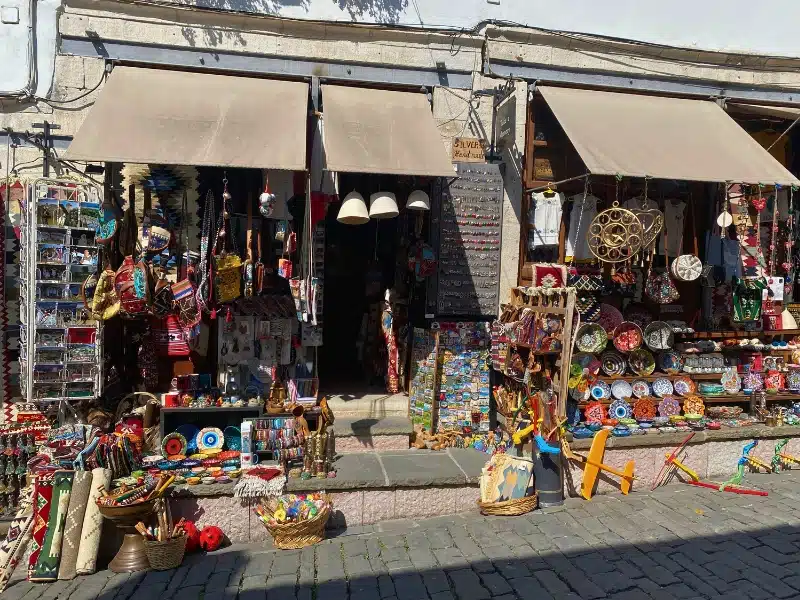
Albania Travel Inspiration
Traveling Safely Around Albania
Traveling around Albania can be an adventure in itself. Here are some tips to ensure you do so safely:
Renting a Car
When you hire a car to drive in Albania, make sure you inspect the vehicle thoroughly (in daylight) on the collection and document any damage to the car that hasn’t been done previously, promptly sharing this information with the car hire company. Also, ensure the correct fuel levels have been marked on the paperwork and that the car is what you ordered.
You should take out coverage for the excess you’d be responsible for in case of an accident. This car hire excess insurance can typically be included during the booking process, upon car collection, or through a third-party provider like Insurance4CarHire, which often offers a more cost-effective option.
We recommend hiring your car with Localrent.com, an aggregator of local car rental companies. They work with small car rental companies that only operate in their location and closely monitor the quality of their service. This means you get the best service for the lowest price.
You may need a 1968 International Driving Permit to drive in Albania. We are UK/Irish citizens and were not asked for an IDP during our stay, but we understand that US citizens may need a permit to hire a car.
Road Conditions
The standard of roads in Albania varies across the country. Major highways and main roads are generally well-maintained, but rural roads and those in less-developed regions can be challenging.
Potholes and uneven surfaces can pose challenges, especially when venturing off the main routes. However, Albania’s road infrastructure has improved in recent years, and ongoing projects aim to enhance connectivity and safety throughout the country.
There are also natural hazards to be aware of, such as inclement weather (especially in the mountains), wild animals on the roads, rock falls, and landslides in remote areas. Don’t venture off the main roads unless you’re in a 4×4 or a competent and experienced driver.
Albanian Drivers
The main cause of road traffic accidents in Albania is the drivers! A bullying style of driving is common, and drivers can be erratic, drive way too fast, and are not great at indicating.
Albanian drivers aren’t necessarily rude, but they are impatient and lack consideration at times. Parking behavior can be haphazard, with drivers stopping wherever convenient. If you’re not quick off the mark at traffic lights, the horns will start within a few seconds.
Motorhomes & Campervans
We traveled through Albania in our overland truck, meeting many van lifers and motorhomers along the way. We camped off-grid and also used campsites in the country. If you’re at all concerned about safety, use an app like Park4Night or iOverlander to check out reviews.
You can also hire a motorhome or campervan in Albania, which is becoming a really popular way to see this diverse country. We recommend Motorhome Republic, an aggregate booking site that pulls together all the best deals from several rental agencies with depots at Tirana Airport.
Public Transport
While Albania’s public transport system is not as developed as in some other European countries, it provides a practical and often interesting way to explore the country.
While public transport is generally safe, keep an eye on your belongings, especially in crowded buses and furgons. For longer journeys, consider carrying snacks and water.
Buses & Minibuses (Furgons)
Buses and minibuses (locally known as furgons) are the most common forms of public transport in Albania. They connect major cities, towns, and even some rural areas.
Buses
In cities like Tirana, Durrës, and Shkodra, city buses operate on various routes, providing an affordable way to get around. Tickets are usually purchased directly from the driver or at designated kiosks.
Intercity buses connect major cities and towns. They are relatively comfortable and offer a reliable way to travel between destinations. Key bus station hubs include the Tirana International Bus Station and the Durrës Bus Station.
Minibuses (Furgons)
Furgons are privately operated minibuses that offer a more flexible and sometimes quicker option compared to regular buses. They typically leave when full and can be found at bus stations or main squares. Furgons are especially useful for reaching smaller towns and rural areas not served by larger buses.
Furgons often do not have fixed schedules and depart when they have enough passengers. It’s advisable to ask locals or your accommodation or check online forums for updated information on routes and departure times.
While public transport is generally safe, keep an eye on your belongings, especially in crowded buses and furgons. For longer journeys, consider carrying snacks and water.
Trains
Albania’s railway network is limited but provides a unique and scenic way to see the country.
Key routes are between Tirana, Durrës, and Vlorë, connecting the capital city with the coastal region.
Hekurudha Shqiptare (Albanian Railways) operates train services. While trains are inexpensive, they are often slow and less comfortable than buses and trains.
Taxis
Taxis are readily available in most cities and towns and are a convenient option for short trips or when public transport is not available. Look for licensed taxis with a taxi sign and a meter. In Tirana, for example, official taxis are usually white or yellow.
If the taxi does not have a meter, always agree on the fare before starting your journey. This helps avoid misunderstandings or being overcharged. Alternatively, you can use a taxi app like VrapOn, SpeedTaxi, or UPsTaxi.
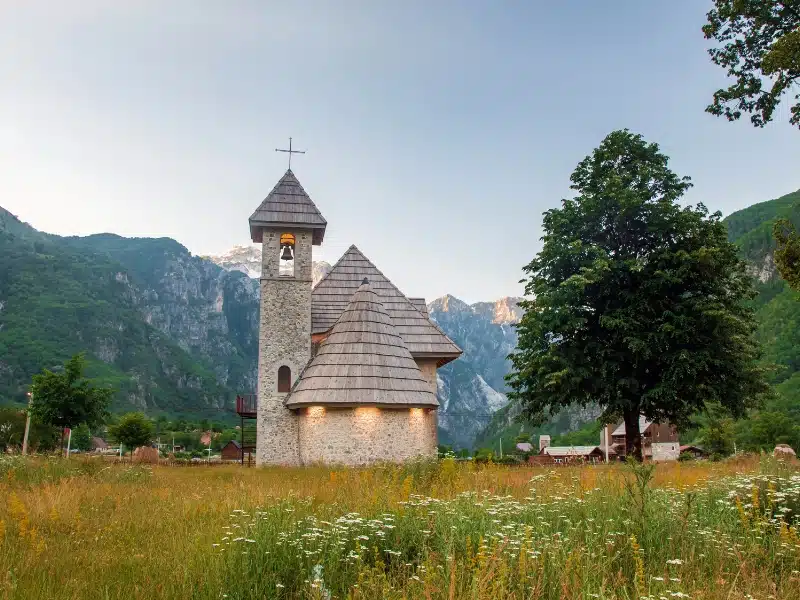
Are you planning a road trip in Albania? Get our Albanian road trip tinerary for info and tips about things to see and do en route + maps and nearby attractions so you don’t miss a thing!
Are you looking for more European travel ideas? Check out these top posts…
Pyrenees Road Trip & Hiking Itinerary: 7–9 Days with an Optional Spain Extension
South of France Road Trip: The Ultimate 10 Day Driving Route
Route Napoléon: Following Napoleon Through the French Alps
Route des Grandes Alpes: An Epic French Road Trip
Brittany Road Trip: The Wild Coast and Historic Heart of Western France by Car
Dordogne Road Trip: The Best of Southwest France by Car
Love it? Pin it!
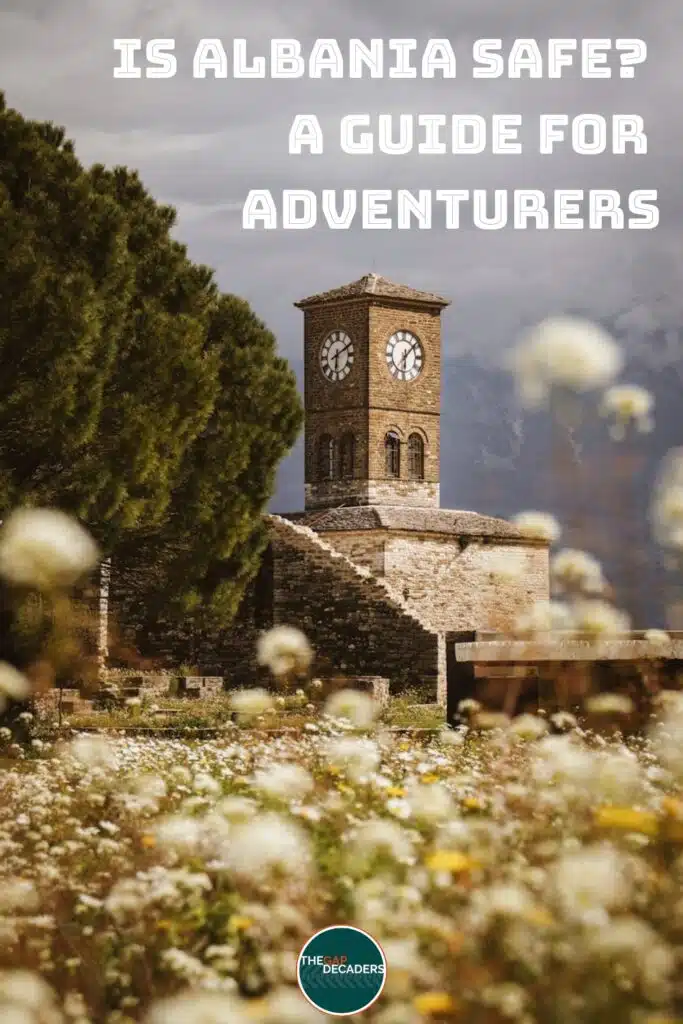
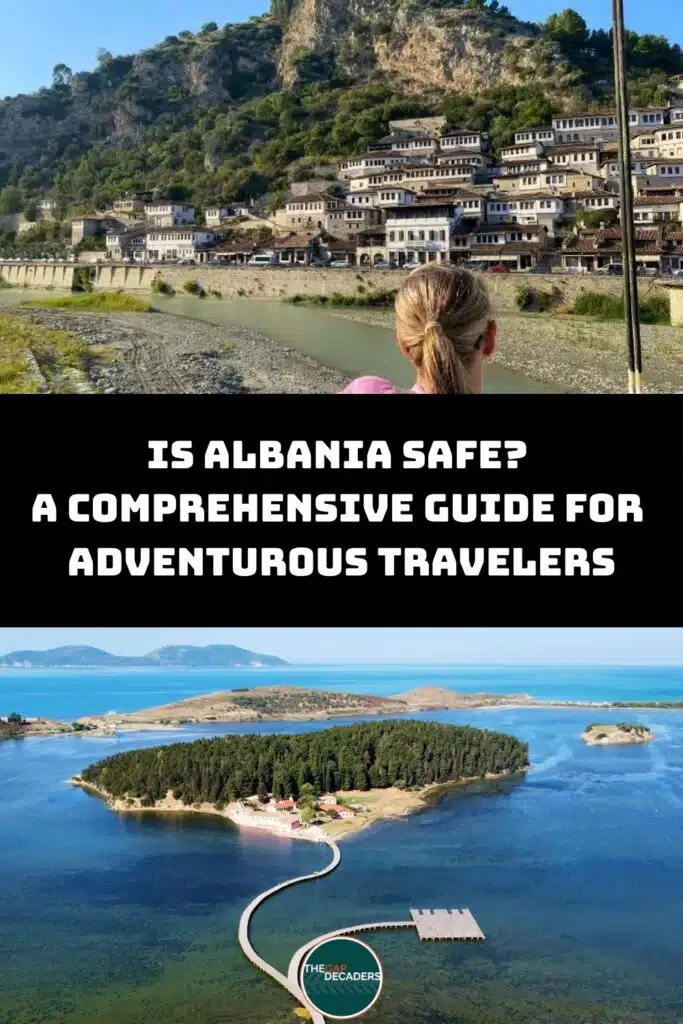

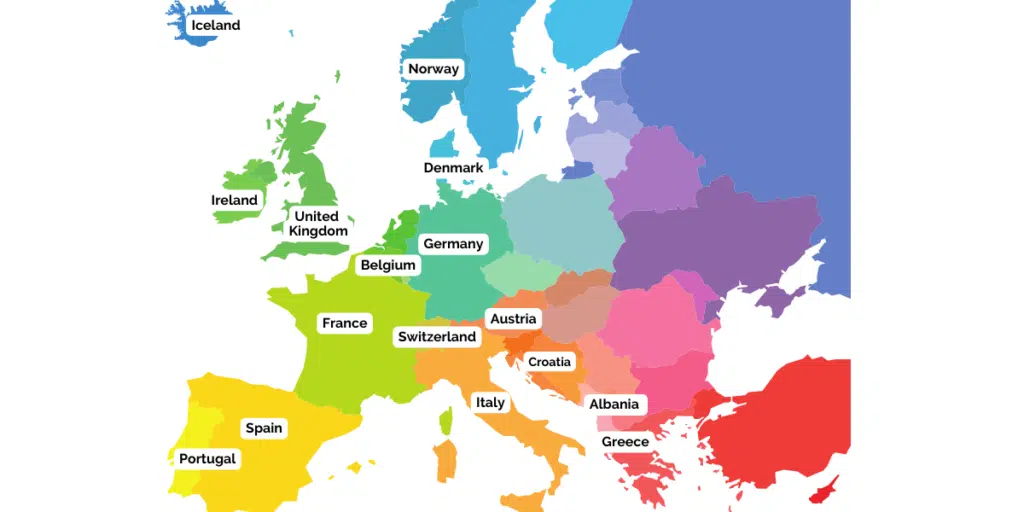
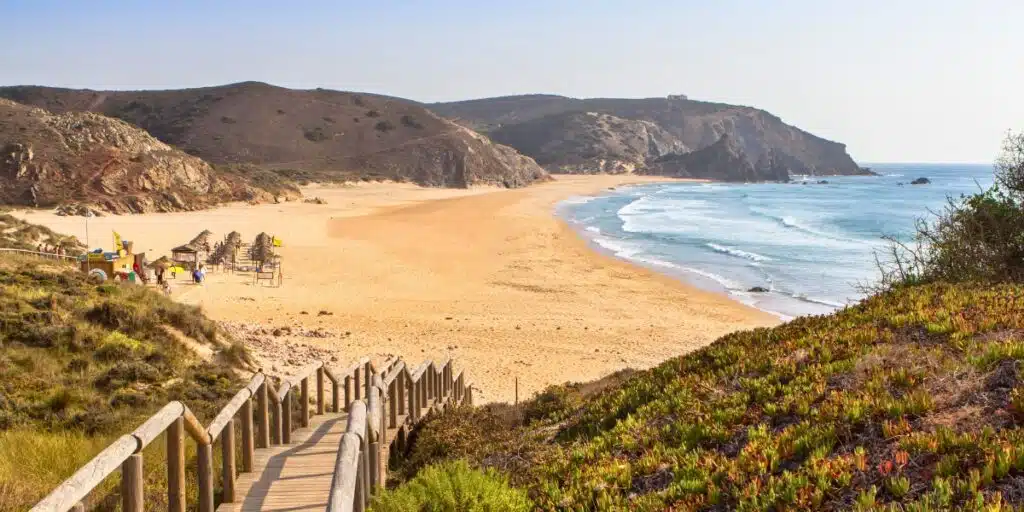
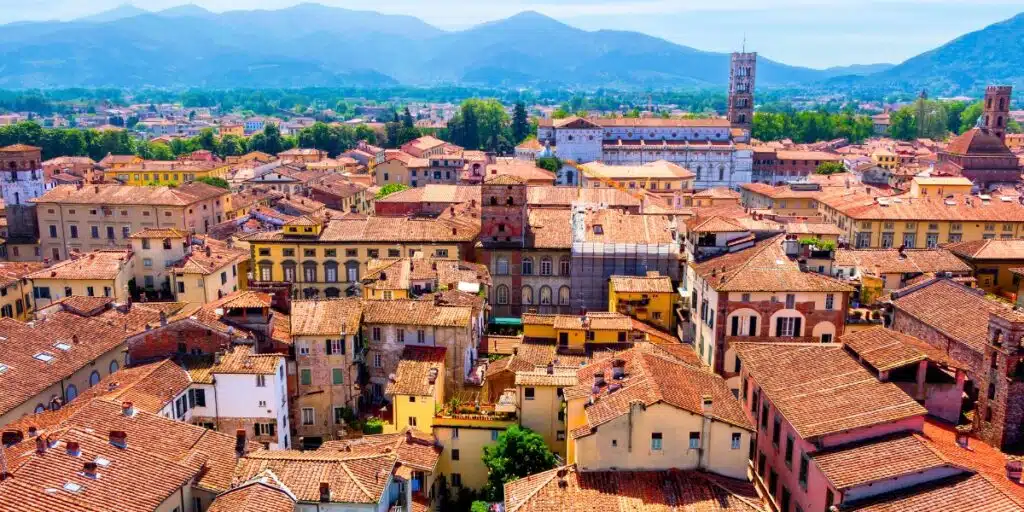
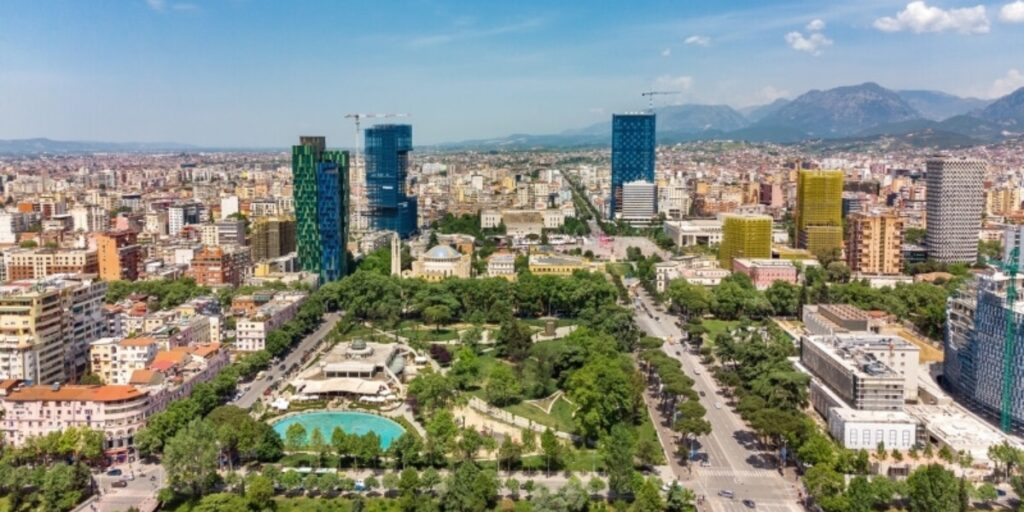
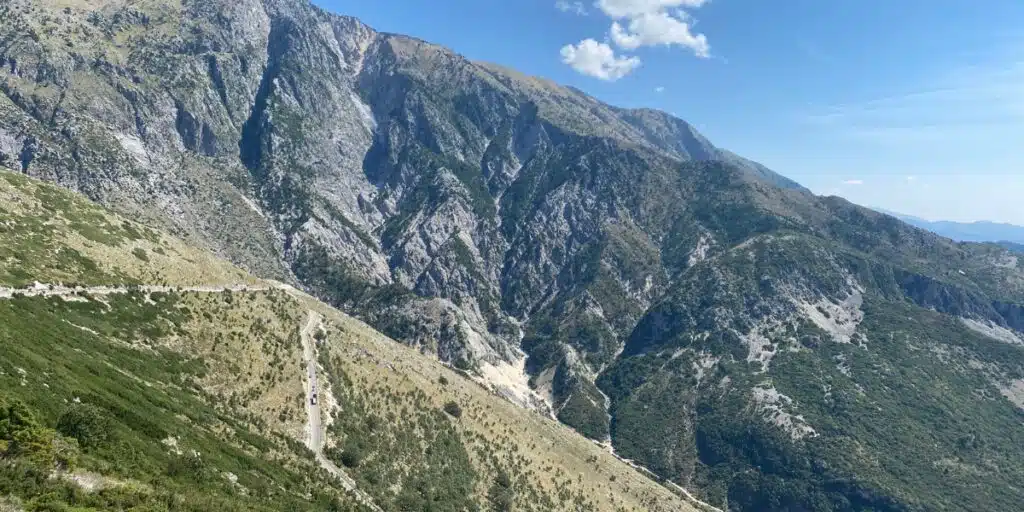
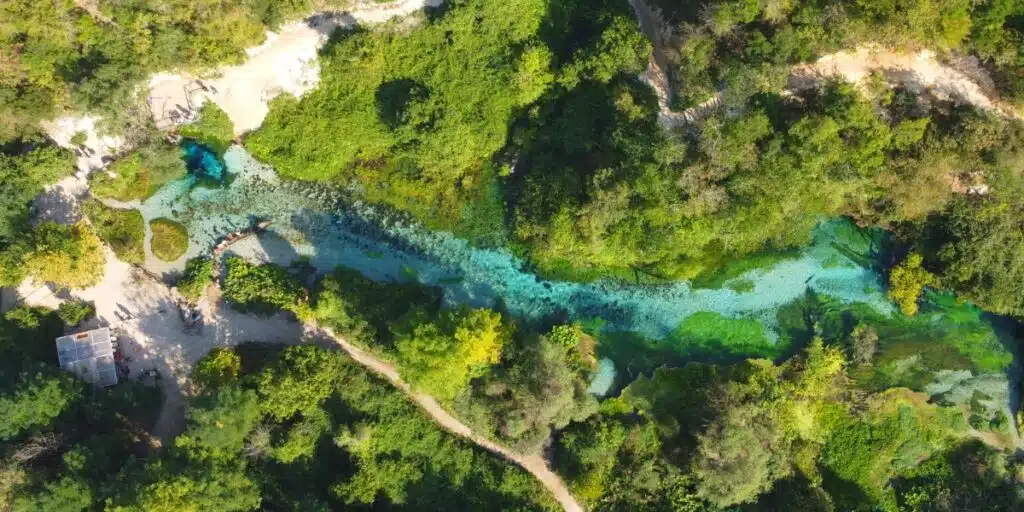
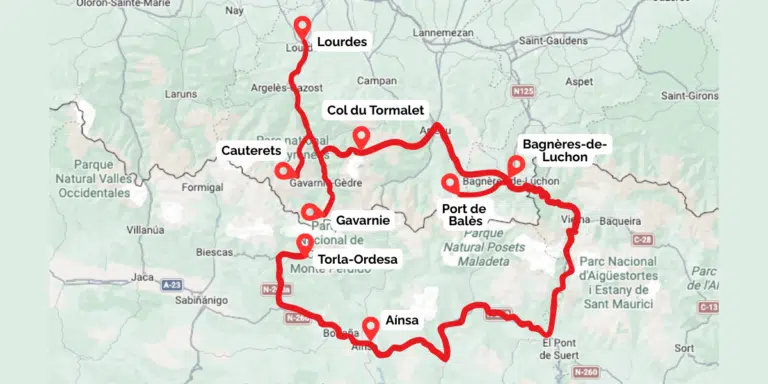
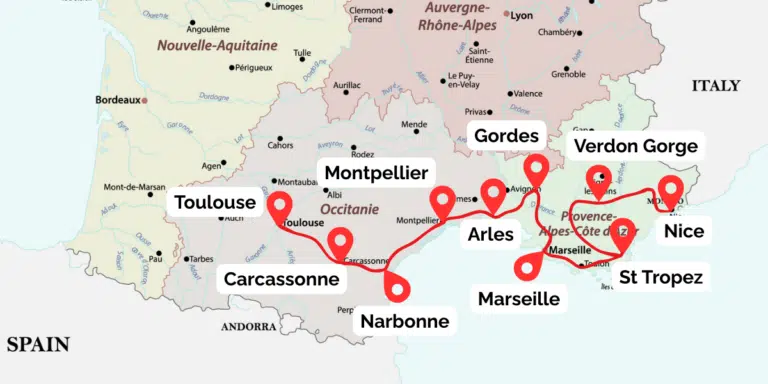
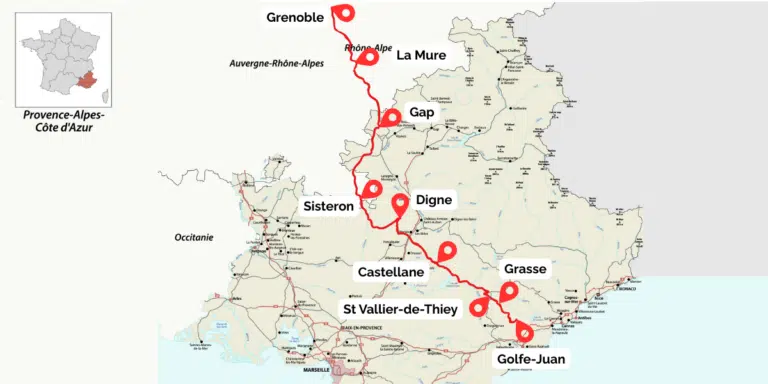

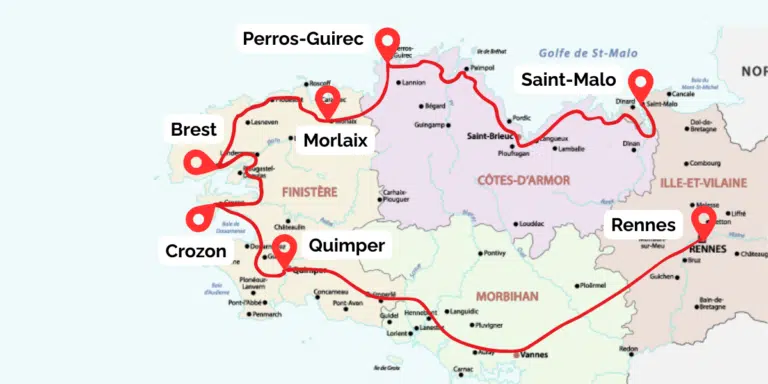
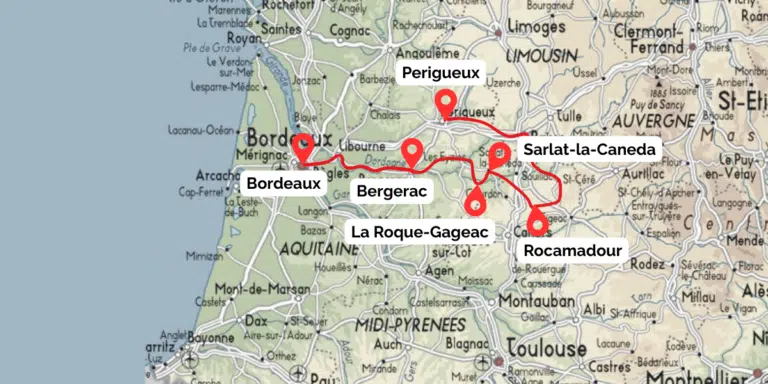
Hi SlickVic I think renting a car is worth it to get to some of the more out of the way places, especially if you want to see a more authentic side to Albania. Follow our tips about renting and you’ll be fine 🙂
I used public transport there last year, not bad at all & cheap. But if u rent, just be smart about it, check reviews n stuff.
SlickVic89, in my experience, renting a car gives you freedom to explore off the beaten path. But yeah, scams can be a concern. Always best to rent from reputable companies and double check everything. Still, public transportation in Albania is quite an adventure and relatively safe. Either way, you’ll have a great story!
Great stuff on Albania but I’ve got a quick q. for the part about driving scams. Do you think renting a car is still worth it? I always thought taking local transport gives you the real feel of a place but these scams sound tricky. Any tips on how to avoid them or is public transport the safer bet? Cheers.